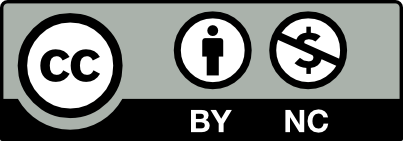Please use this identifier to cite or link to this item:
http://hdl.handle.net/10609/92842
| Title: | Moocs en Cataluña: un instrumento para la innovación en educación superior |
| Other Titles: | Moocs in Catalonia: fueling innovation in higher education |
| Author: | Sancho-Vinuesa, Teresa Oliver, Miquel Gisbert Cervera, Mercè |
| Others: | Universitat Pompeu Fabra Universitat Rovira i Virgili (URV) Universitat Oberta de Catalunya (UOC) |
| Citation: | Sancho-Vinuesa, T., Oliver, M. & Gisbert, M. (2015). Moocs en Cataluña: un instrumento para la innovación en educación superior. Educación XX1, 18(2), 125-146. doi: 10.5944/educXX1.13462 |
| Abstract: | Policymakers and higher education institutions in Europe have shown an increasing interest in MOOCs after its prompt irruption in the United States. Although complex and changing, the MOOCs phenomenon has created great expectations in the higher education arena at several levels: pedagogical, strategic and economic. In January 2013, the Government of Catalonia set up a singular effort to embrace and project the university's teaching system by issuing a public open tender to create or improve MOOCs. This paper analyses the first results of this effort and whether it provides enough evidence to confirm that this new offer in Catalonia shows symptoms of innovative disruption. The methodology framework is based on Christensen's theories on innovative disruption, which have been adapted to obtain a first some preliminary results. The analysis defines a set of variables for each of the dimensions being researched (evidence of a new market, level of adaptation from existing courses and model of associated costs) applied to a group of 14 selected courses from the first public call already done. The results of such a call, with only a 10.1 % of proposals funded over a global figure of 138, show clear signs of disruptive in innovation in the majority of the courses. The cost analysis compares both MOOCs and traditional online education showing the same level of importance regardless of the number of participants involved. Finally, the results suggest caution when examining the first available data from those courses. |
| Keywords: | disruptive innovation MOOCs higher education |
| DOI: | 10.5944/educXX1.13462 |
| Document type: | info:eu-repo/semantics/article |
| Version: | info:eu-repo/semantics/publishedVersion info:eu-repo/semantics/publishedVersion |
| Issue Date: | 27-Oct-2015 |
| Publication license: | http://creativecommons.org/licenses/by-nc/3.0/es/  |
| Appears in Collections: | Articles Articles cientÍfics |
Share:
 Google Scholar
Google Scholar
 Microsoft Academic
Microsoft Academic
This item is licensed under a Creative Commons License



